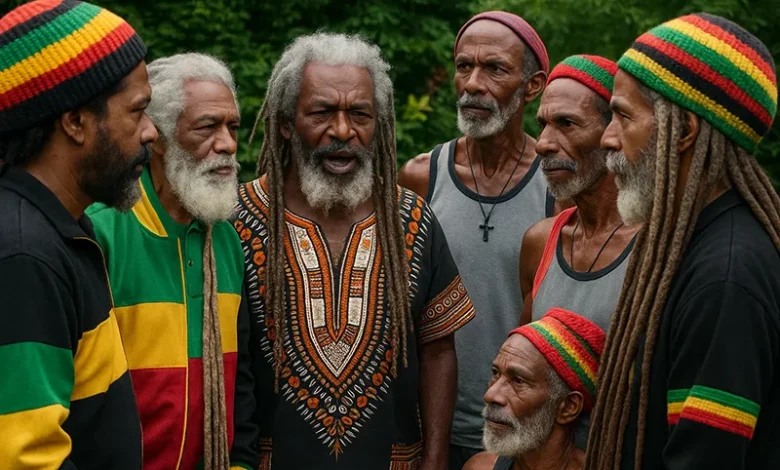House of Nyabinghi in Dominica

The House of Nyabinghi in Dominica traces its inspiration to the Nyabinghi Order, one of the oldest “mansions” or denominations within the global Rastafari movement. Named after a legendary East African spirit figure, Nyabinghi represents traditional, orthodox Rasta beliefs centred on the divinity of Haile Selassie I as Jah and Messiah. The concept was adopted in Jamaica during the mid-20th century’s anti-colonial resistance and eventually spread through Pan-African, Caribbean, and Diaspora communities.
In Dominica, Nyabinghi adherents emphasise ceremonial drumming (“binghi” sessions), chanting, reasoning, and spiritual gatherings rooted in remembrance of African liberation, repatriation principles, and resistance to oppression.
Presence and Activities in Dominica
The House of Nyabinghi in Dominica maintains an active presence in spiritual and cultural life. In 2010, the government partnered with local Nyabinghi representatives, led by Ras Imani Shaw, to commemorate African Liberation Day, highlighting a shared interest in Pan-African identity and local cultural affirmation. Shaw noted that, although political emancipation occurred, mental and cultural emancipation remain incomplete.
Members of the House conduct public Nyabinghi Issembles, multi‑day gatherings with drumming, chants, communal meals, and “reasoning” discussions. These assemblies reinforce communal bonds, Rastafari principles, and a sense of heritage consciousness.
According to local accounts, the Ni‑A‑Binghi branch in Dominica suffered under the Dread Act of 1974, which criminalised Rastafari identity. The Nyabinghi organisation claims that at least 21 members were jailed, killed, or disappeared during this period of state repression. Despite trauma, the community persisted and remains one of the island’s most traditional Rasta associations.
Cultural Significance and Community Engagement
House of Nyabinghi’s role extends beyond religion into Dominica’s broader cultural life. The group’s drumming style, rooted in Niyabinghi rhythm, features a three-drum ensemble (bass, funde, repeater) and influences Dominican reggae and roots music, connecting local performance traditions to global Rastafarian rhythm culture.
Its engagement in public ceremonies, such as African Liberation Day, fosters dialogue on reparations, cultural identity, and socio-political justice, aligning with Caribbean intellectual movements rooted in Pan-Africanism and Black Power. The organisation collaborates with cultural divisions and diaspora groups to stage events promoting Rastafari history, freedom struggles, and spiritual resilience.
In rural and urban areas, House of Nyabinghi maintains elders‑led leadership, where elder recognition rather than formal structure determines authority




